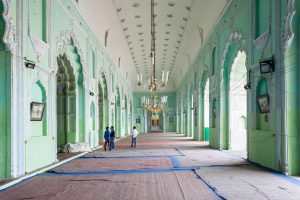On November 4, Indian Prime Minister Narendra Modi condemned the violence that broke out at a Hindu temple in the Canadian city of Brampton the day before. He stated that this was a cowardly attempt to intimidate Indian diplomats and that he expected the Canadian government to ensure justice and uphold the rule of law.
Diplomatic ties between Canada and India have suffered immensely over the past year, following the Canadian government’s accusation that the Indian government had played a role in the murder of Hardeep Singh Nijjar.
The recent statement made by Modi is ironic considering the plight of religious minorities in India and the constant threat they are under.
During the reign of Modi’s Bharatiya Janata Party (BJP), the rate of violence against religious minorities has reached an alarming height, with no consequences for the vigilante groups responsible for the violence and no empathy or even acknowledgment from the side of the Indian government.
The United States Commission on International Religious Freedom (USCIRF), in an October 2024 country update about India, detailed how the Indian state has facilitated the seizure of property belonging to the Muslim community. The report gives the example of Maharashtra, where during the Mira Road violence police did not take any action as mobs vandalized dozens of Muslim-owned shops. Post-violence, several reports discussed how the police placed the blame on and arrested Muslim youth, despite receiving complaints about the actions of a Hindu mob. The municipal authorities also demolished Muslim-owned properties that they deemed to be illegal.
This is a standard template that has been followed by the state following instances of religious violence. When violence broke out during the Braj Mandal Jalabhishek Yatra in Nuh, this template was put into action, and it has become a standard state practice.
What we can infer from these incidents is that the Indian government provides impunity to Hindu mobs in such matters. The violence further allows the state to place the blame on the Muslim residents of the affected area and question the legality of their properties and proceed with demolition of said properties without following proper procedure or due process of law. As we see in the case of the Mira Road violence, activists and residents stated that they possessed documents to prove the properties were legal and questioned why no notice had been provided by the state stating that the properties would be demolished.
In the context of Indian Christians, the United Christian Forum (UCF) stated in a press release that in the first two-and-a-half months of 2024, there had been more than 150 violent attacks against the Christian community. The incidents include attacks on churches and prayers meetings, harassment of Christians who are following their faith, and ostracization. Another report released by the UCF detailed that from January to November 2023, the UCF had received reports of 687 incidents of violence. The incidents of violence are similar to those reported in 2024: mobs vandalizing church properties and prayer halls or targeting Christians under the accusation of them being responsible for forced conversions.
During the Manipur violence in 2023, the Archbishop of Imphal spoke about how mobs had targeted churches. He estimated that about 249 churches were destroyed during the conflict. Modi did not speak on the Manipur violence for 76 days, and when he broke his silence there was no acknowledgment or remorse for the desecration of minority religious spaces in his statement.
Analyzing data from ACLED (Armed Conflict Location & Event Data) on India and searching for events where mosques have been vandalized in the year of 2024, 13 cases were found through early November. These include cases of mosques being vandalized with religious slogans belonging to the Hindu community, being broken into by mobs, or incidents where mobs hoisted saffron flags on top of the mosque. At least one mosque has been vandalized every month of the year; however, there is silence from Indian government, displaying an inherent bias toward those responsible for the vandalism rather than the victims.
The ACLED is not an exhaustive list, but it provides a look into the frequency of attacks against places of worship belonging to the Muslim community. If we include state-led demolitions of Muslims shrines and mosques, incidents of violence that take place in the vicinity of mosques, and the increasing demand for demolition of mosques on the grounds of illegality from the side of the Hindu right, we see a broader trend of intense persecution faced by Muslims in India.
The environment of escalated communal tensions that has been fostered by the BJP under the leadership of Modi has allowed for properties, both religious and private, owned by minority communities to come under question in terms of their legality or face the risk of vandalism at any given point. While the prime minister is right to condemn the violence that broke out in front of the Hindu temple in Brampton, Canada, a closer look at home is warranted to preserve the secular foundation of India.

































